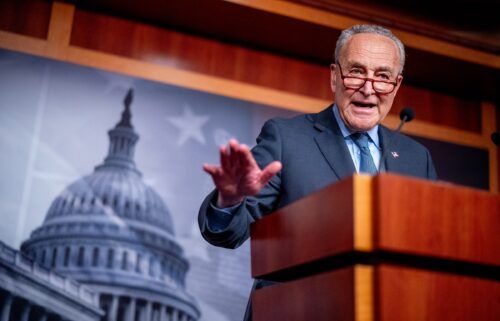Christianity quickly diminishing in US, on pace to become minority religion in decades: study

A recently released study suggests the number of Christians in the United States is diminishing quickly and being replaced by those who do not identify with any religion.
A new report by Pew Research Center and the General Social Survey published Tuesday found a surge of adults leaving Christianity to become atheist, agnostic or "nothing in particular." It predicted that if the number of Christians under 30 abandoning their faith accelerates beyond the current pace, adherents of the historically dominant religion of the U.S. could become a minority by 2045.
Noting how approximately 90% of Americans identified as Christians in the early 1990s, the study observed that the number, which includes children, had fallen to only 64% by 2020. The research showed that the number of people in the U.S. who identify as religiously unaffiliated skyrocketed from 16% in 2007 to 29% in 2020. Other religions such as Judaism, Islam, Hinduism and Buddhism, accounted for approximately 6% in 2020.
The study presented four hypothetical scenarios by which the U.S. religious landscape could change in the coming decades. In one scenario, researchers analyzed the potential impact of young Christian adults abandoning their faith and switching affiliations without limitation.
These rates of religious switching model what the U.S. landscape would look like if switching stayed at its recent pace, continued to speed up, or suddenly halted: 5/ https://t.co/BELUlKdCdu pic.twitter.com/InenWf4LAY
— Pew Research Center (@pewresearch) September 13, 2022
The other three scenarios hypothesize other types of increasing religious disaffiliation, but "they all show Christians continuing to shrink as a share of the U.S. population, even under the counterfactual assumption that all switching came to a complete stop in 2020."
All four scenarios project swelling ranks among the religiously unaffiliated, or "nones," throughout the next half-century. The only scenario that projects Christians maintaining a majority in the U.S. through 2070 is if no one changes their religious affiliation after 2020.
"Of course, it is possible that events outside the study’s model – such as war, economic depression, climate crisis, changing immigration patterns, or religious innovations – could reverse current religious switching trends, leading to a revival of Christianity in the United States," the study said. "But there are no current switching patterns in the U.S. that can be factored into the mathematical models to project such a result."
Our NEW projections show U.S. Christians are on track to lose their majority status within a few decades if recent trends continue, driven mostly by young people leaving the faith. 🧵https://t.co/iTk2OiLOOj pic.twitter.com/tecy2HF8oF
— 𝗦𝘁𝗲𝗽𝗵𝗮𝗻𝗶𝗲 𝗞𝗿𝗮𝗺𝗲𝗿 (@_StephKramer) September 13, 2022
The study's data showed that while more older Americans are remaining identified with Christianity, many younger adults are increasingly switching to "nones."
"If the pace of switching before the age of 30 were to speed up throughout the projection period without any brakes, Christians would no longer be a majority by 2045," Pew researchers noted.
In such a scenario, the number of religiously unaffiliated would stand at 52%, and the number of Christians dip to 35% by 2070.
"Switching has not ended, and there is no reason to think it will come to an abrupt stop," the researchers said, adding, "Still, if fewer future young adults switch from Christianity to no affiliation, or if movement in the opposite direction increases, the future religious landscape might resemble the results of this projection."
The researchers predicted, based on recent generational trends, that the most likely scenario among their hypotheticals is Christianity declining but still remaining capped at 50%.



